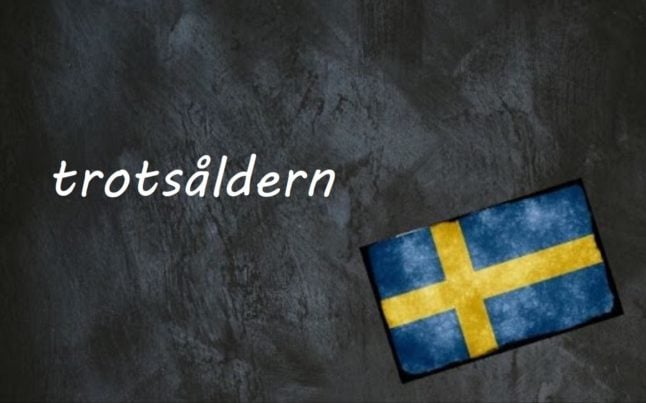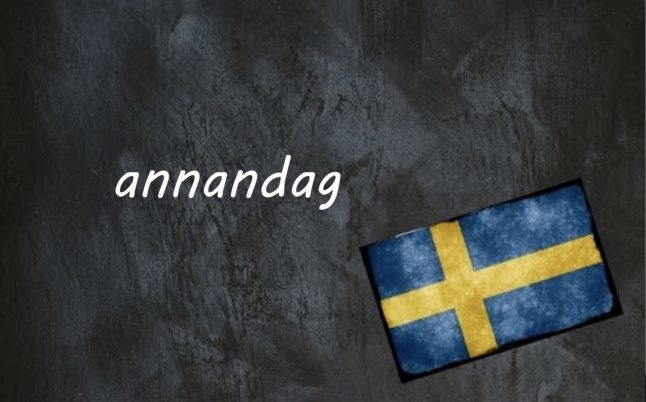Trotsåldern is the age of toddler tantrums; what in English-speaking countries is known as ‘the terrible twos’, but which often extends to three and four-year-olds too.
You’ll usually see it in the definite form, trotsåldern, where the final ‘n’ is the equivalent of English ‘the’. It is a compound word combining trots, meaning ‘defiance’ (note: trots is also a preposition meaning ‘despite’) and åldern meaning ‘the age of’, and therefore literally means ‘the age of defiance’.
- Don’t miss any of our Swedish words and expressions of the day by downloading our new app (available on Apple and Android) and then selecting the Swedish Word of the Day in your Notification options via the User button
It is used most often in Sweden as a one-word excuse from embarrassed Mums and Dads as their child lies shrieking on a supermarket floor, red-faced, hammering the ground, and refusing to be moved.
For example: [sighs]…Det är ju trotsåldern. This could be translated as “It’s just the terrible twos, you know”.
Trotsåldern is also the subject of innumerable articles in newspapers, magazines and parenting blogs with titles like: Hur man hanterar barn i trotsåldern (How to handle children in the terrible twos), Myten om trotsåldern (The myth of the terrible twos), and Så överlever ni trotsåldern (How you survive the terrible twos).
You will sometimes hear the word trotsig (defiant) applied to toddlers in the trotsåldern, although it can equally describe a rebellious teenager, a stubborn animal, or a stubborn adult.
And you can also talk about trotsålder (ages of defiance), tvåårstrots (two-year-old defiance), treårstrots (three-year-old defiance), and even tonårstrots (teenage defiance).
Example sentences
Med ett barn i trotsåldern ställs stora krav på dig.
When you have a child in the terrible twos, it demands a lot of you
Ordet trotsålder syftar på perioder i ett barns utveckling när det testar gränser.
The word ages of defiance describes periods in a child’s development when they test boundaries.
Den klassiska trotsåldern börjar omkring 2½ år .
The classic terrible twos starts at around two and a half years old.
Villa, Volvo, Vovve: The Local’s Word Guide to Swedish Life, written by The Local’s journalists, is available to order. Head to lysforlag.com/vvv to read more about it. It is also possible to buy your copy from Amazon US, Amazon UK, Bokus or Adlibris.



 Please whitelist us to continue reading.
Please whitelist us to continue reading.
Member comments